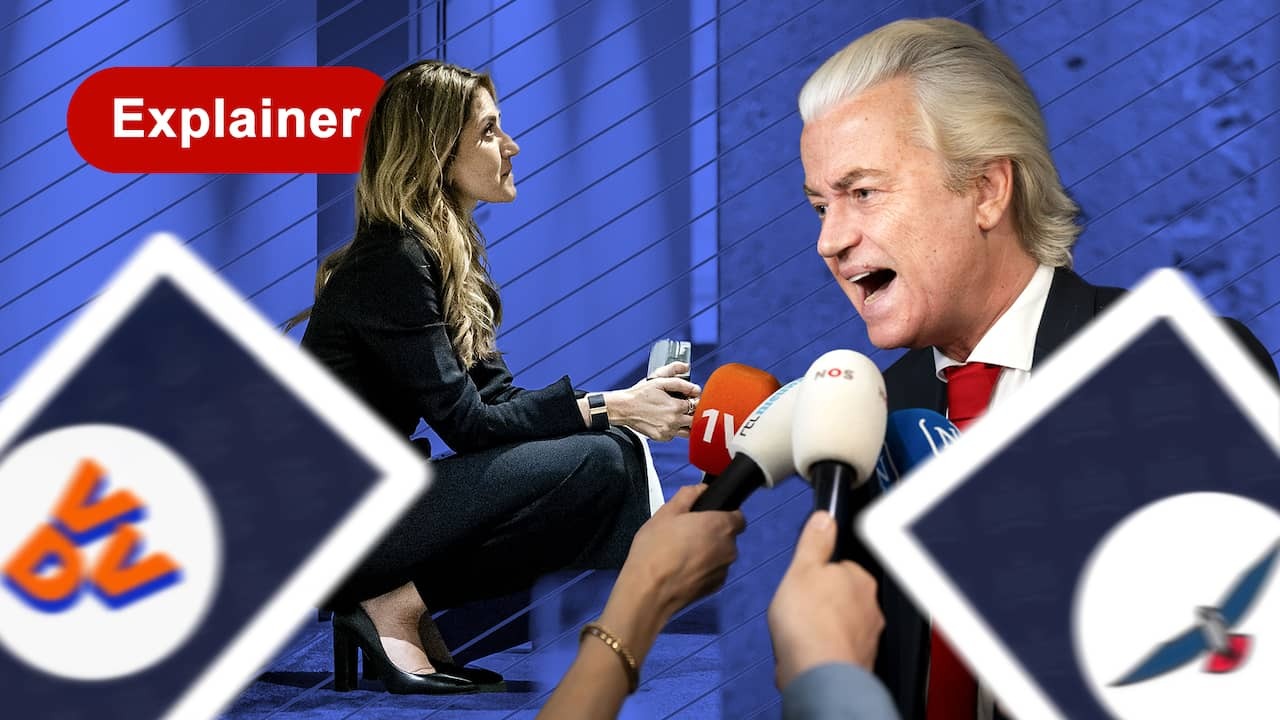
Tuesday, PVV leader Geert Wilders withdrew support from the coalition, causing the Schoof cabinet to collapse. Many NU.nl readers had questions about the cabinet’s fall. What is the strategy behind it? What happens now? Political reporter Sanne Oving answers your questions.
What is Wilders’ strategy?
“Wilders naturally saw that it was no longer about his most important point: asylum migration. In The Hague, the emphasis lately has been mainly on the geopolitical situation and, for example, Dutch defense. There was not much to be gained for Wilders there.”
“In addition, this cabinet had not yet managed to deliver on that important PVV dossier. Outgoing Asylum Minister Marjolein Faber was regularly criticized for not getting to work on the cabinet plans quickly enough.”
“The PVV leader also saw the number of seats he was expected to get according to polls slowly decline. These may all be reasons for Wilders to throw in the towel.”
“But we don’t really know why Wilders did this. His party is barely accessible to the press. And because the PVV only has Wilders as a member, he doesn’t have to answer to anyone either.”
Why didn’t the coalition parties agree to Wilders’ list of points?
“VVD and NSC provided an explanation on Wednesday. According to Dilan Yesilgöz (VVD), that ‘would have been fine’ if Wilders had explained the points a little more. ‘It is useful that if you have ideas, you hear a little more than one line,’ the VVD member sneered. But according to her, it didn’t get that far.”
“Nicolien van Vroonhoven (NSC) noted that the plans would never have passed the Senate and House of Representatives in the way they were now worded. ‘Bold language,’ she called it.”
“VVD, NSC and BBB say afterwards that they completely agreed with the PVV, but they also know that many of Wilders’ plans would be legally complicated. They did propose submitting a motion to have Wilders’ plans investigated.”
“VVD, NSC and BBB all indicated that they had the idea that Wilders was planning to step down anyway, and that it is therefore not directly linked to his ten-point plan.”
The PVV says that the party is being opposed. To what extent is that true?
“The PVV has indeed said this more often. An example is that Wilders emphasized that ‘his’ asylum minister Faber received hundreds of questions about her asylum laws. Incidentally, Faber and outgoing Prime Minister Dick Schoof also emphasized this. But that is actually quite common with new laws, and especially with laws that are so far-reaching.”
“You can say that about many of these arguments: that some political parties do not want to cooperate also has to do with the fact that they are in the opposition or simply really think differently about certain subjects. That is part of democracy.”
“Wilders also indicated that the PVV was being opposed by, for example, civil servants in the ministry, but there is no evidence for this.”
Could the parties now form a cabinet themselves without the PVV?
“VVD, NSC and BBB could have decided to try it without the PVV. But those three parties have not had a majority in the House of Representatives for a long time. And a cabinet does need support for its plans.”
“Support could possibly also be sought from parties other than the PVV. But Frans Timmermans (GroenLinks-PvdA) and Rob Jetten (D66) immediately indicated that they did not want to jump into Wilders’ gap. This made new elections unavoidable.”
What happens now with the PVV ministers?
“The PVV ministers will be replaced until there is a new cabinet. Temporary replacements are now being sought for this.”
“Until those temporary replacements are found, the tasks of the PVV ministers and PVV state secretaries will be taken over by other ministers. For example, outgoing Minister David van Weel (Justice and Security, VVD) will temporarily take over the tasks of the outgoing Faber (Asylum) and outgoing State Secretary Ingrid Coenradie (Justice and Security).”
“What exactly will continue and what will not is not yet clear. In the coming weeks, the House will decide which files it will declare controversial, as it is called in The Hague.”
When will there be new elections?
“Probably in the fall. The Electoral Council has said that Wednesday, October 29, is the first realistic date. Outgoing Minister of the Interior Judith Uitermark must now make a final decision.”